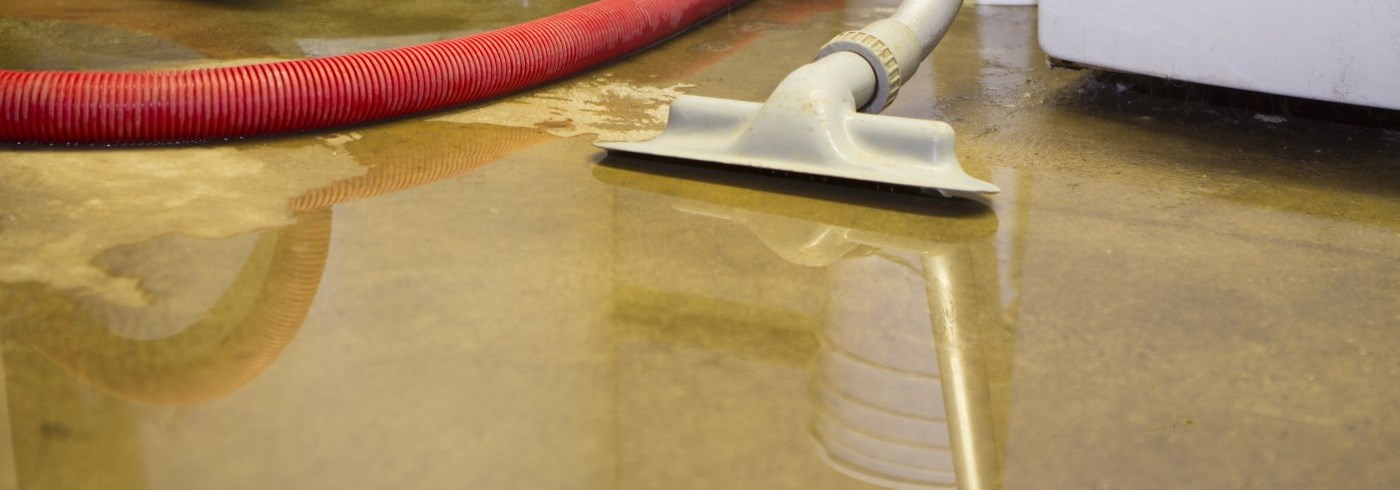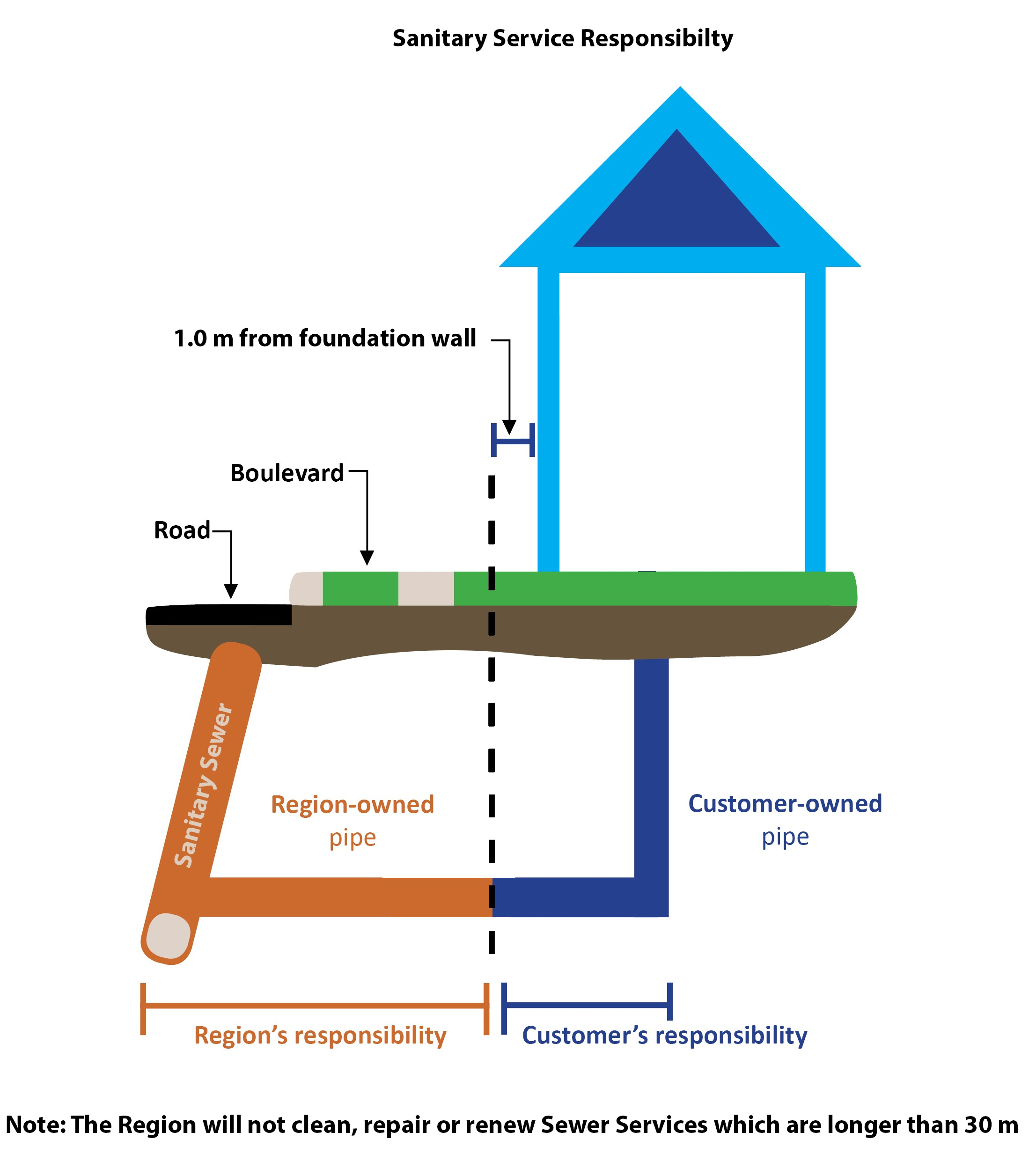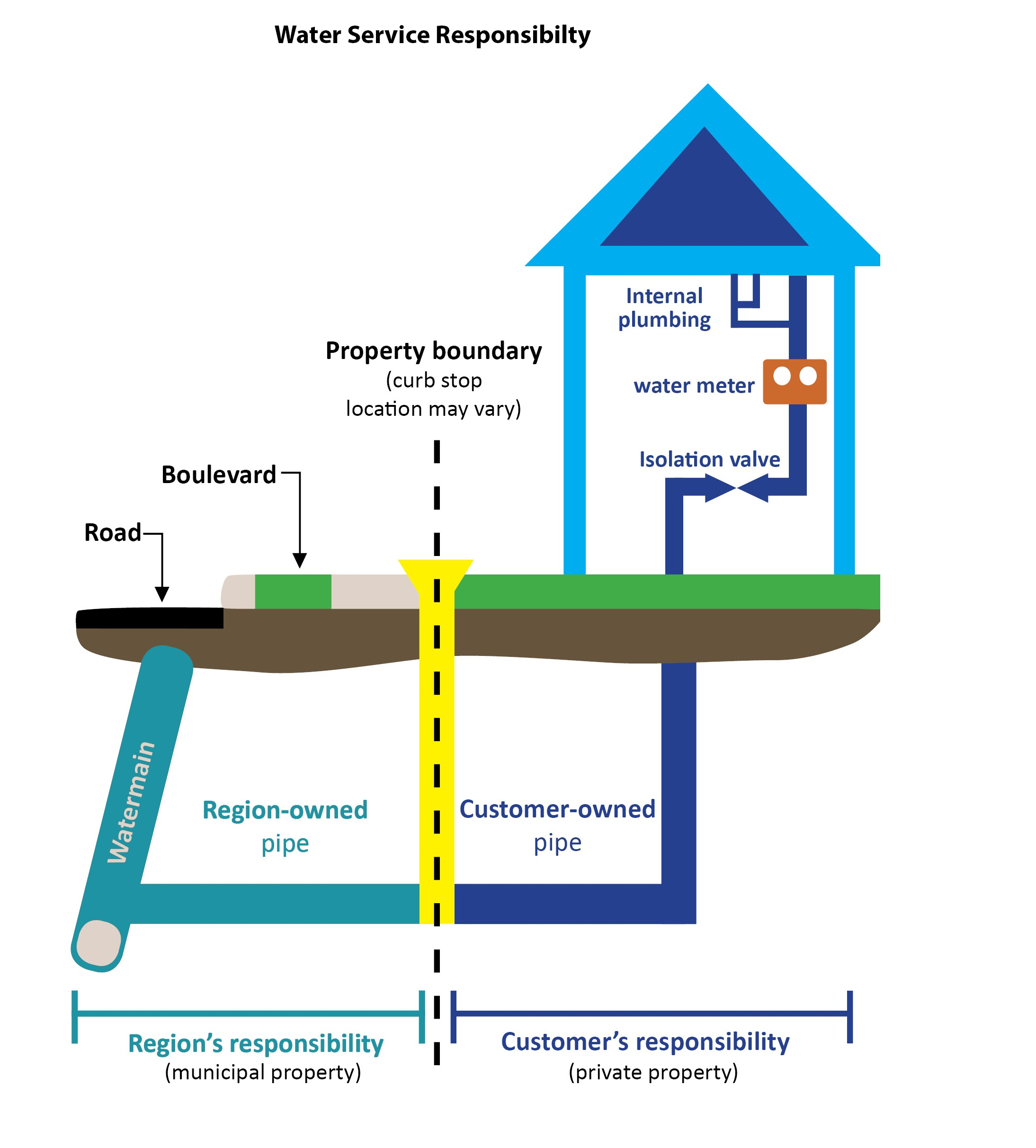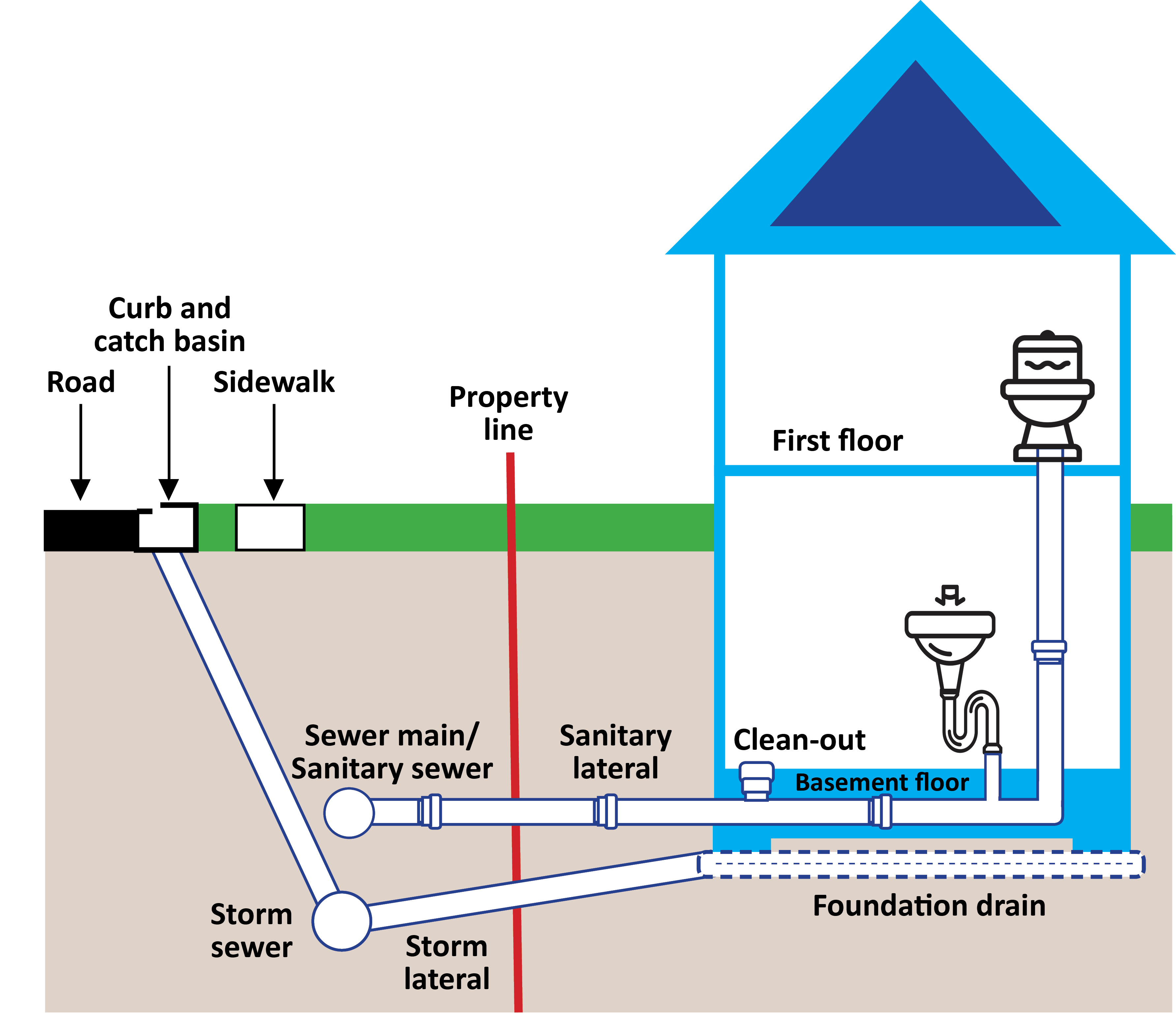
Basement Flooding
Report basement flooding
You can report basement flooding to your local Region of Durham Works Department depot. Learn more about our Basement Flooding Loan Program.
For after-hours emergencies, please call: 905-576-9991 or 1-800-372-1104.
Private residences and homes can have their connections cleared from the sewer main to the property line by our Works Department when it is determined that there is a backup outside of private property. Industries, businesses and institutions maintain the sewer connection from the maintenance hole at the property line.
| Sanitary Sewer and Water Service Connection Responsibility |
|
Sewer service connection limits of responsibility diagram Homeowners are responsible for repairing damage or breaks to the sanitary sewer service connections if it is damaged within one metre (three feet) from the house foundation or within the house. The Region will provide repair only services for residential customer’s sewer service connections from property line up to one metre (three feet) outside the house foundation. *The Region does not provide restoration work (for lawns, gardens, landscaping including sprinkler systems or driveways, etc.) on private property.
Water connection limits of responsibility diagram The limits of responsibility are different for water service connections. Homeowners are responsible for water service connection repairs on private property. The Region will provide repair services for residential customer’s water service connections within the public right of way only—up to the property line. |
| Homeowner insurance and warranty programs |
| The Region encourages all homeowners to consult with their individual home insurance or warranty program provider to confirm coverage for water and sanitary sewer service connection repairs. |
|
Sewer-use By-law and Resources |
|
We have many projects to update our water and sewer works. Learn more about sewer back-ups. View a copy of the updated Region By-laws. |
|
Facts about basement flooding |
|
There are two types of sewers in Durham Region:
There are many causes of basement flooding, especially during heavy rain storms or during snow melt, such as:
|
|
Reduce your risk of basement flooding |
|
You can reduce your risk of basement flooding due to sewer backup by:
Our Works Department inspects and cleans the sewer from the main to the property line only. One of the major factors contributing to basement flooding is the lack of overland flow routes for storm drainage during extreme storms. A lack of proper controls on private property, such as downspout disconnection from sewer collection systems and proper lot grading are also contributing factors. The Institute for Catastrophic Loss Reduction's Handbook for Reducing Basement Flooding provides information on how you can reduce the chances of having basement flooding. |
|
Flooding claims |
|
If you experience flooding, contact your local Region of Durham Works Department depot. Staff will inspect the problem, assess the flooding and attempt to determine the source. Call your insurance company as soon as possible and report property damage caused by the flooding. Remember to take photos of any damage and keep receipts from emergency repair work or cleanup work done to prevent or reduce further damage. If the flooding is a result of a blocked drain pipe, leaking foundation or walls or drainage issues on your property, you are responsible for repairs and any subsequent damage caused by flooding. We will make all repairs to Regional pipes. Frequently, sewers or drains are blocked by tree roots. We will help clear the blockage. Contact your local Region of Durham Works Department depot for more information. You can submit a claim for damages to the Region. Your claim information will be forward on to our Finance Department, Risk & Insurance Division for investigation. You will receive a letter of acknowledgment. If you have any questions, contact our Risk & Insurance Division by telephone at 905-668-7711 extension. 2493. |
|
Cleaning up after flooding |
|
Put your health and safety first when cleaning up your flooded basement. Exposure to contaminants carried by flood water or sewer backups into basements can be dangerous. Homeowners may be exposed to waterborne diseases, corrosive cleaning agents and irritants found in leftover sludge from a flooded basement. Electrical accidents may occur because of contact with water and electricity. It is important to clean up your basement quickly to avoid mould. There are steps you can take to safely clean up your flooded basement, such as:
|
Contact Us







